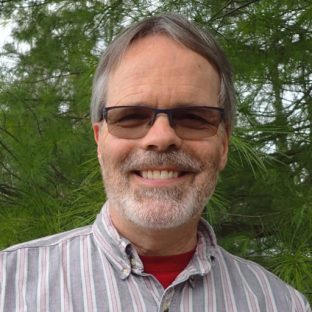
- This event has passed.
7/22/19: Craig Williamson

Please join us for a Great Lakes Seminar Series presentation:
Time: 1:30-2:30 pm EDT
Location: NOAA Great Lakes Environmental Research Laboratory, Lake Superior Hall
Presenter: Craig Williamson, Miami University
Title: “Implications of Changes in Water Clarity for Lake Ecosystem Structure and Function: Beyond the Holy Grail”
Abstract: The holy grail of lake management can be found in the strong relationship between nutrient loading and chlorophyll concentrations. Increases in nutrients can lead to harmful algal blooms, cyanotoxins, and dead zones. These events plague western Lake Erie, coastal oceans, and many other inland waters. Yet a recent survey of 2,913 lakes in the USA shows that overall little has changed with either nutrients or chlorophyll in recent decades. In the meantime, lakes in many parts of the world are turning browner due to up to a doubling of terrestrially derived dissolved organic matter. Hot spots of this lake “browning” include northern Europe and northeastern North America. Lake browning is both a good news story involving recovery from anthropogenic acid deposition in response to the Clean Air Act Amendments of 1990, and a bad news story related to climate change and increases in precipitation and extreme storm events. Other lakes such as Lake Michigan and Lake Huron are increasing in water clarity. What are the implications of these changes in water clarity for ecosystem structure and function? Reductions in water transparency can increase surface water temperatures, lead to stronger thermal stratification, contribute to oxygen depletion, and facilitate increases in invasive species. Anoxia can in turn stimulate regeneration of phosphorus from the sediments, and combined with warmer surface water temperatures, increase the potential for harmful algal blooms that further decrease water transparency. Both increases and decreases in water clarity also have important implications for the success of invasive and native fish species, fisheries management, as well as solar UV disinfection of parasites and pathogens in lakes. Understanding the causes and consequences of change in water transparency is essential to effective management of lakes and the important ecosystem services that they provide.
Bio: Craig Williamson is the Ohio Eminent Scholar of Ecosystem Ecology at Miami University in Ohio where he leads the Global Change Limnology Laboratory. His expertise is in the ecology of UV radiation and climate change, with a current focus on the effects of water clarity on lake ecosystems. His research is based at the Lacawac Sanctuary and Biological Field Station in the northeastern Pennsylvania, but extends worldwide. Research questions range from UV effects on the ecology of zooplankton, larval fish, and infectious diseases, to deploying advanced sensors to decipher the sentinel responses of lakes to climate change. He serves on the United Nations Environment Programme Environmental Effects Assessment Panel (UNEP EEAP), is active in the Global Lake Ecological Observatory Network (GLEON) where he leads the Climate Sentinels Working Group, and is the Chief Scientific Adviser of the Pocono Lake Ecological Observatory Network (PLEON), an outreach program on public education and monitoring of lakes in northeastern Pennsylvania.
**Registration is not required, however please note important visitor information**
Important Visitor Information
All in-person seminar attendees are required to receive a visitor badge from the front desk at the NOAA Great Lakes Environmental Research Laboratory facility. Seminar attendees need to present a valid U.S. photo ID or green card. If you are a Foreign National, advance notification of at least 48 hours is needed so that security guidelines are followed. You will need to present your passport (a copy will NOT work). For questions regarding building access, or assistance in obtaining Foreign National clearance, please call 734-741-2394. Email contact: [email protected]
_____________________________________________________
Questions? Contact Mary Ogdahl: [email protected]
Visit ciglr.seas.umich.edu for more information.
